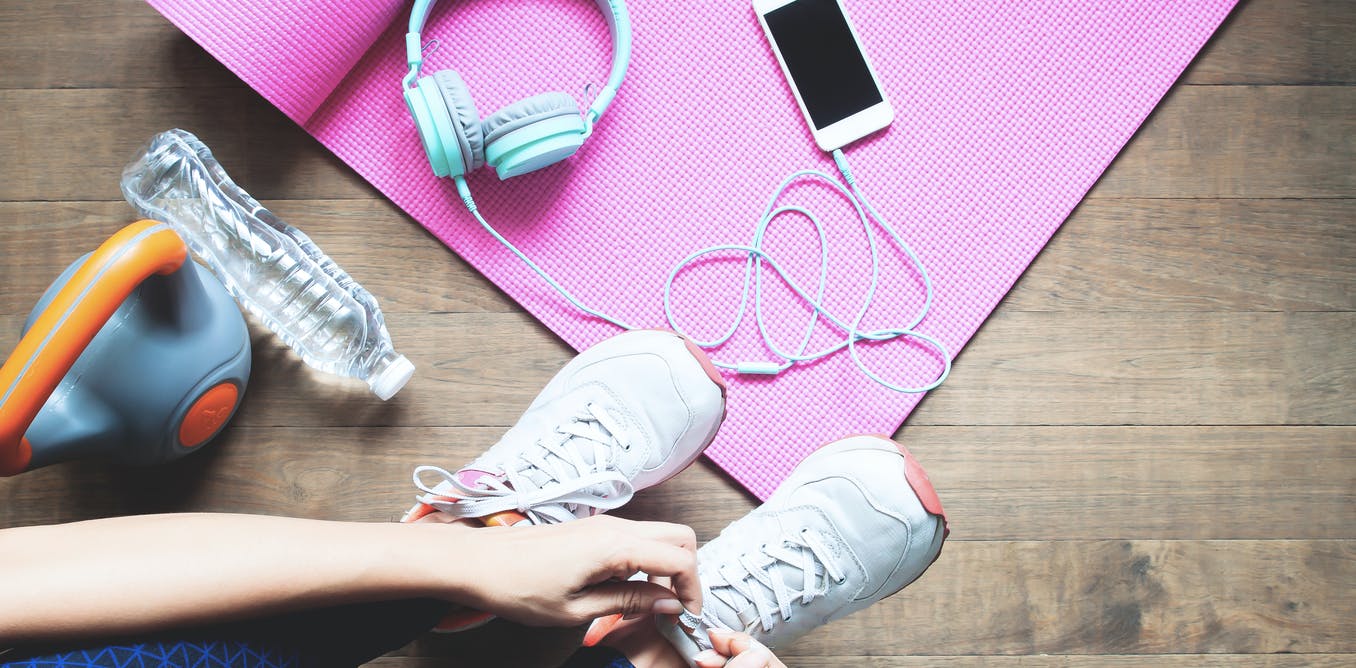Social media can help young people live healthy lives

Social media often had a positive influence. SUPREEYA-ANON/ Shutterstock
We often hear of the harms of social media on teens and young people, especially on their mental health and self-esteem. And while it’s true that there is evidence of links between the two, our latest research on young girls and young boys has revealed that social media isn’t always negative for young people.
In some cases, we found, it can actually positively influence their health and wellbeing, by helping them learn about healthy eating, or about new workouts to try. We also found that social media provided a space for young people to talk to each other about issues of health.
For our study, conducted by researchers from the University of Birmingham and Örebro University, we recruited over 1,300 young girls and boys, aged 13-18, from ten UK schools. We were interested in better understanding how young people use social media, and how they feel it impacts their health and wellbeing.
To do this we selected 84 participants from the main sample and had them take part in small focus group interviews. The teenagers shared examples of health-related social media posts that they had accessed or used (such as smoothie recipes, a workout, or a celebrity’s post), and then explained why and how they had used the information in the social media post.
They also discussed the types of social media posts they would ignore and not use (such as workouts that were not age appropriate). They were then asked about how they used social media as part of their daily lives and how they thought it affected their health and wellbeing.
The results showed that social media often had a positive influence on the young people’s motivation to be physically active and on their ability to make conscious diet choices. Social media also allowed them to access information they found inspirational, and learn about different apps they could use to be physically active or monitor their progress. They reported that likes, comments, and views on their social media posts also helped them stay motivated to exercise.
Encouragingly, the young people we spoke to were also highly critical users of social media and thought carefully about the content they were engaging with online. For instance, the teenagers reported that they would often ignore content that had the potential to lead to harm, such as images or videos that presented unrealistic workouts or expectations for their bodies.
#Gymlads vs #SkinnyGirls
Our study also showed that boys and girls interacted with social media differently, revealing different, gendered, concerns about health and wellbeing.
Boys tended to report accessing health-related information to help them be more physically active and used social media to chat with friends. But many said they experienced pressure from social media to look “ripped” (muscular) but not too slim.
To cope with this pressure, many told us that they used irony and humour in their posts to avoid ridicule from friends, or as a coping mechanism if they felt they didn’t “fit in” because of their physique. For instance, the boys in our study explained how they used the hashtag #gymlad when posting selfies. While some used it in a literal sense (if their body was ripped), others used it ironically.
Our results indicate that girls, on the other hand, tend to use social media apps like SnapChat and Instagram to learn about health, and to find support from friends and followers and keep in touch with their peers.

Teens still faced pressure from social media on their looks.
Africa Studio/ Shutterstock
But the girls also said that they were wary of skinny or fat shaming online, and were on constant alert of such posts. Many also said they faced contradictory pressures to be thin but not too thin, and that while it was acceptable to be “fake” (for example, through the use of filters on their photos), many felt that they couldn’t be “too fake”, and that a natural look was preferred. To avoid being skinny or fat shamed, many told us they used terms like “chunky monkey” in their posts – even if they knew they were thin.
Although many of the young people’s experiences of social media were positive in terms of health, it was evident that some of the time, they found themselves in a position of vulnerability. Some said they experienced bullying and heightened levels of body dysmorphia on social media. We found that these risks were particularly evident when their online profiles were public, and when the content shared by others, including their friends, made them feel bad about their bodies. If young people are vulnerable, for whatever reason, social media use has the potential to intensify those vulnerabilities.
While the risks should certainly not be overlooked, our findings show that social media can actually be positive for young people’s health and wellbeing. We also know from other research that a benefit of social media is that it provides real-time, low-cost information, and support from peers. Empowering young people to use social media safely, critically and responsibly may thus help them continue to live healthy lives.

Victoria Goodyear received funding from Wellcome Trust for this research.
Mikael Quennerstedt does not work for, consult, own shares in or receive funding from any company or organization that would benefit from this article, and has disclosed no relevant affiliations beyond their academic appointment.







